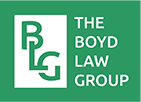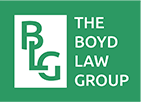Recently, the United States Equal Employment Opportunity Commission (EEOC) provided employers guidance as to how best manage vulnerable employees and how these employees should be accommodated in the wake of COVID-19. The EEOC suggests that as part of every employers’ “re-opening” plans, employers should take great care to implement social distancing and other good safety measures in their workplace. Greater protections may need to be implemented for immunocompromised and other vulnerable employees (those suffering from respiratory, heart diseases, diabetes, etc.) that may be at disproportionate risk of infection and serious illness if exposed to COVID-19.
In its guidance, the EEOC has stressed the need for an employee to inform his or her employer of the need for an accommodation if health risks are at play. Furthermore, employees should be able to provide medical documentation and answer questions from employers regarding the need for an accommodation. As in any instance of disability accommodation under the Americans with Disabilities Act (ADA), the employer must ultimately determine whether a vulnerable employee’s medical condition can be reasonably accommodated.
Furthermore, in its guidance the EEOC indicated that it is impermissible for an employer to prohibit an employee from working, even where the employer knows the employee is at higher risk for severe illness if exposed to COVID-19. However, it will be permissible for employers to prohibit an employee from entering a workplace where the employee presents with COVID-19 symptoms and this poses a “direct threat” to coworkers. The decision of whether a “direct threat” exists requires a highly individualized, objective assessment where employers will have to consider the duration of risk, the nature and severity of potential harm, the likelihood and imminence of such harm, and whether the employee “notwithstanding the risk [can] perform the essential functions of the job without threatening his/her health, with or without accommodation.” An employee’s pre-existing medical condition will not constitute a direct threat if the threat can be reduced or eliminated through reasonable accommodation. Such accommodations may include, but are not limited, to relocating or reassigning an employee, allowing an employee leave time or the option to work remotely.
Finally, the EEOC provided a more extensive list of what may qualify as reasonable accommodations (that is, accommodations that are not unduly burdensome to employers) that may reduce or eliminate the direct threat of a vulnerable employee contracting COVID-19. Such accommodations include providing personal protective equipment (PPE)(including enhanced PPE), placing physical barriers to separate vulnerable employees from the public or coworkers, eliminating, substituting, or reducing non-essential jobs that create a high risk of exposure, moving workstations to provide for social distancing, and modifying employee schedules.
In the wake of the COVID-19 public health crisis and the gradual reopening of numerous states to business, it is undoubtable that most if not all employers will confront a vulnerable employee who is scared or unable to return to work without accommodations. The guidance promulgated by the EEOC will provide employers some insight as to how to respond to employee apprehension and concern and how to develop a safe plan to resume operation. For further information regarding returning to work, or making your workplace safe in reopening you may consult: https://www.eeoc.gov/wysk/what-you-should-know-about-covid-19-and-ada-rehabilitation-act-and-other-eeo-laws.
The coming months may be challenging to navigate and even these guidelines leave a fair amount of room for legal interpretation. The Boyd Law Group is ready at any time to help you through these difficult times so feel free to call one of our employment law attorneys for help and guidance! #theboydlawgroup #employmentlawyer

